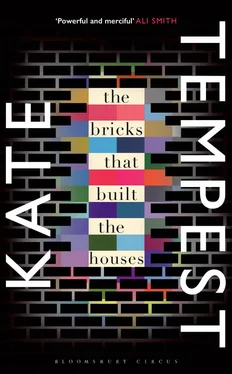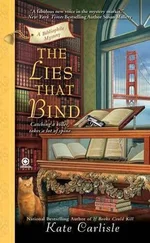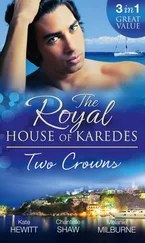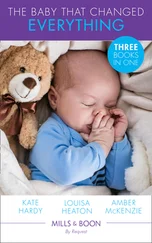She could have brought her home with her.
No strings and flings, and one-night stands, she’s not after any more than that. She prefers to keep things simple. She likes girls and she likes boys. If something is exciting, she lets it be exciting. But the minute people get too keen, she cuts them off. She can’t handle any more than casual things. It gets too painful. You give too much, they take too much, they want too much, or not enough, and suddenly you find yourselves emptied out and open-handed, grabbing for some more.
She doesn’t like to think of her mum, but it happens late at night when she’s alone and chopped up like this, when she’s rushing and caked and her defences are weak. The ever-repeating motif that she tries to escape, building momentum, the age-old crescendo. And then, through the dark and churning sea, looming up from the depths, she senses the bad thought approaching. She tries to escape it, swims hard against the current, but she’s smashed back down and she can’t get away, and she feels it approach, the lumbering, formless dread.
‘Fuck off, Dad,’ she says, and the words drop softly. Her voice is sticky in the darkness, throat raw from smoke. She allows herself to think of him for the first time in months, years maybe. She tries to remember his face. If she thinks hard enough, forces her brain back to remember an image, there is one that still lurks beneath her lungs somewhere. Her dad, young and smiling, curly-haired and handsome, big enough to fill a doorway, in the armchair in the front room of the flat they used to live in, smiling, maybe at her or maybe at her mother’s camera.
She turns over in bed, agonising, squirming, fidgeting. Body so tired, but head so busy, head so sore and sharp and whirring.
She gets up, drags her doughy limbs to the shelf in the corner where she keeps her drugs box and digs around through the small chunks of hash and half-pills for the pack of diazepam. She takes one out and holds it in her mouth, finds a swig of water in a glass by the bed and waits to pass out.
In the space between the cocaine and the alcohol and the diazepam, her brain expands, floods her with the past.
Becky’s mum was a woman named Paula, pronounced like the Italian — Powler, and she had been a professional photographer. Her dad, John, pronounced like the Elton — John, had been a lecturer in politics at the University of London.
John Darke was a young and brilliant PhD student, working on a book that would, by all accounts, change the way we thought about politics in this country. His mother was a sitar player from Jaipur, his father a double bass player from Bromley. They had met in the summer of 1952, playing together as part of an orchestral exchange programme set up for young players by the London Symphony Orchestra.
John had grown up in Catford in the 1960s. The only mixed-race kid in his class. Skinny white boys in army-green balaclavas had thrown bags of dog shit through his mother’s letterbox. They set fire to his school bag at the bus stop and pushed him in the playground.
When he was thirteen he won undying schoolyard respect by swinging his arm back and punching a bully out cold. Something changed in his guts after that. He stood over his attacker as he came round from the blow, watched him snivel on the ground like a blind pup, and he understood that to his surprise he felt no sense of victory. Only sadness. After that, John Darke could be relied upon to stand up for every young boy in the school. He became a hero. With his new-found respect, he built an alliance. Every suffering hurt him, not just his own. But he wanted the bullies to be a part of it too. He wanted all the kids in the school to stand together.
They caned him. They tensed their foreheads and ground their teeth. Their nostrils flared and the loose flesh around their necks fell around their collars as they drew back their arms. John Darke felt his anger rising and breathed into its redness. He didn’t shed a tear or let a squeal out his mouth. His stoicism didn’t go unnoticed. The next week they expelled him for bullying.
He was sent to a school for ‘troubled’ boys deemed ‘educationally subnormal’. Apart from one — Jamie, a stuttering pyromaniac whose bones showed through his shirt — none of them were white. He saw how his friends would come in on Monday mornings, limping, cheeks swollen from the weekend encounters with truncheons or boots. Here he was, dumped at the bottom of the rung. He and his classmates were viewed as criminals. John rejected the idea that ‘troubled’ kids were to blame for their troubles. If young boys stole, or stabbed each other over debts, or felt compelled to arm themselves when they walked the streets, it was not even considered that it might be the fault of the social structures they lived under. Instead, it was always the fault of the boys themselves. It’s on us, the people at the bottom , John realised, to fix things for ourselves, even though it’s us who suffer the decisions of the people at the top the most.
His best friend at this time was a boy named Duane who was brighter than anyone John had ever met, he wrote rhyming verse and knew equations by heart. They played football, ate chips and sat at bus stops together. One day, Duane didn’t show up. Months passed before John heard that Duane had been stopped and searched by police and had drugs planted on him. He was serving a lengthy sentence in a young offenders’ institution in Surrey. That afternoon, on his way home, choking on the news, John was chased by three boys who spat at him and called him a ‘dirty Paki’. They caught up with him at the junction where Lewisham High Street met Bromley Road and they knocked him to the floor. He was winded. He retched while they kicked his back and stomach. It wasn’t until he vomited that they laughed and ran off. He lay on the street; it was five in the evening, still light, the road was busy enough. Not one person stopped to ask if he was OK. He lay there for ten, maybe fifteen minutes, getting his breath back, until eventually he picked his sore bones up and walked home, wiping the blood off his lips with the cuff of his school shirt.
His teachers conferred in the staff room about his increasingly militant temperament. They swilled lukewarm tea around their stinking gums and huffed into yellowing moustaches as they marked a black dot beside his name on their forms: Potential Radical .
On 13 August 1977 John Darke was twenty-three, a long time out of Park Hill School for Educationally Subnormal Boys. He stood with a group of young socialists on New Cross Road and faced the National Front, who were attempting to march from New Cross to Lewisham, home to one of the largest West Indian communities in London. The people of the borough and people from all over the city rallied together to stop the march. They became involved in clashes with the police in what would later be known as the Battle of Lewisham. The National Front were humiliated. People of all colours stood together. John saw white people standing alongside black and Asian people, he saw them go down in front of the bucking horses, he saw them take the brunt of the heavy shields, he saw them fighting, thousands of them, together, unified in standing against fascism and racism and the brutality of the police. In a strange, flickering moment, John found himself leaning against a shopfront briefly, wiping the sweat and the smoke from his eyes. He looked out at the scene, the streets and the people, arms linked, and he felt a hope surging through him; at last, he thought.
In that moment he vowed that he would dedicate his life to politics.
He grew into a man who was sure of his opinions but humble enough to listen carefully to his detractors and debate properly with his peers. He was an impressive speaker and a handsome man. His lectures attracted young people from outside the university. He could be found giving passionate talks in the back rooms of crowded pubs, or in cafés where he would stand on two chairs, one foot on each, and rock slightly as he spoke, or to crowds of young mothers in the usually deserted public libraries on winter afternoons. He was a champion of strong belief and positivity. He was out for something and it radiated from him and made him someone wonderful to be around.
Читать дальше












